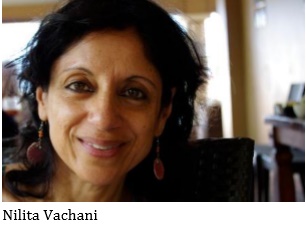The investigative piece, published in The Caravan, reveals the exploitation of an illiterate domestic worker by powerful businessmen who were ensnared in the largest insider trading case in the United States.
Nilita Vachani won the inaugural ACJ Award for Investigative Journalism in the print/online category for her story published in The Caravan magazine in November 2015. Vachani’s story is about the exploitation of Manju Das, a domestic worker from West Bengal, by powerful businessmen of South-Asian origin in the United States. Vachani was presented a citation by the jury and INR 200,000 in prize money for her work.
The winner was chosen from a pool of 111 entries that were first shortlisted to form the top 30 nominations and further narrowed to the final four. The print/online category saw entries in 8 languages from 46 news media outlets and had stories from 64 locations of reportage.
The three other final nominees in the print/online category are as follows (in no particular order): Malini Subramaniam’s ‘Ground Report: The truth behind Chhattisgarh’s recent Maoist surrenders’ published in Scroll in December 2015; Krishn Kaushik’s ‘Doing the Needful: Essar’s Industry of Influence’ published in The Caravan in August 2015; and Sohini Chattopadhyay’s ‘Inside the fellowship of the relentlessly positive’ published in Grist Media and Yahoo News in February 2015.
The final jury comprising chairperson Leila Seth and members TJS George, Mrinal Pande and Mukul Kesavan chose Vachani’s story for the prize with this citation, “Nilita Vachani’s ‘Inside Job—the woman who was sacrificed to nab Raj Rajaratnam’ was unanimously chosen for the 1st ACJ Award for Investigative Journalism. The jury was struck by the excellence of her writing and the poignant yet unsentimental recreation of the tragedy of an illiterate woman used by powerful men. Nilita Vachani’s great achievement is how she tracked down and introduced to the reader a person whose identity had been stolen for profit in America and who had then been abandoned to obscurity and destitution in a remote village in West Bengal. Her tenacity and imagination in taking what seemed like the loose end of a high profile prosecution and teasing it out into a moving parable of greed and stoicism makes her a worthy winner.”
The broadcast category saw only four entries this year, none of which was considered prizeworthy. Therefore, the ACJ Awards Committee in consultation with the jury members decided not to give the award in this category for 2015.



